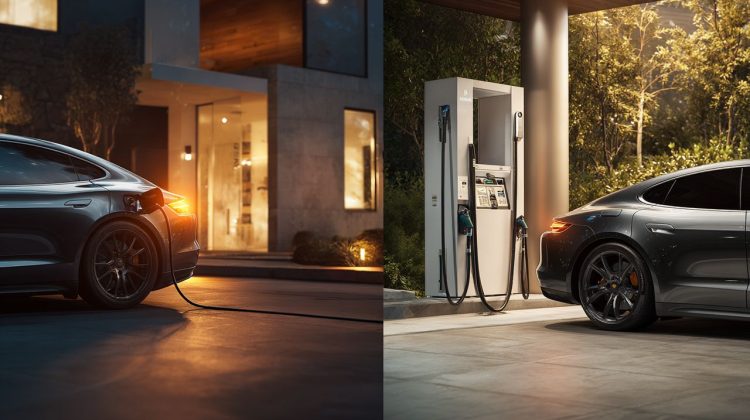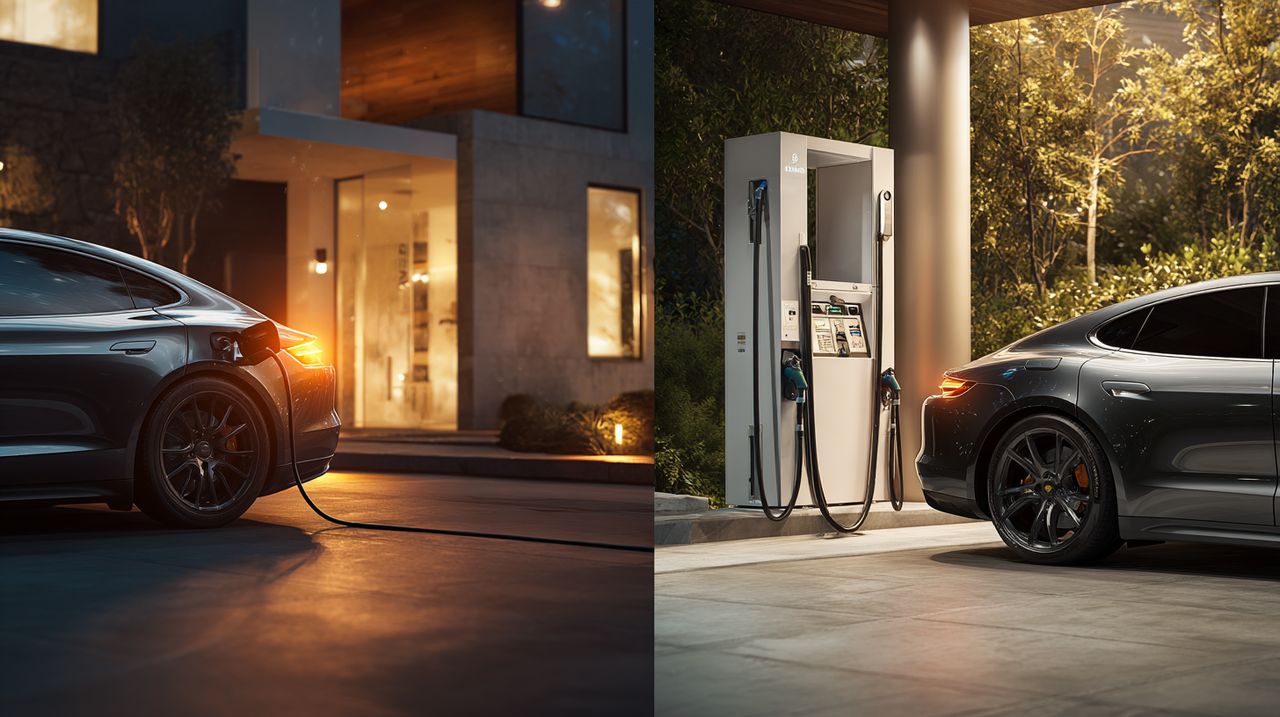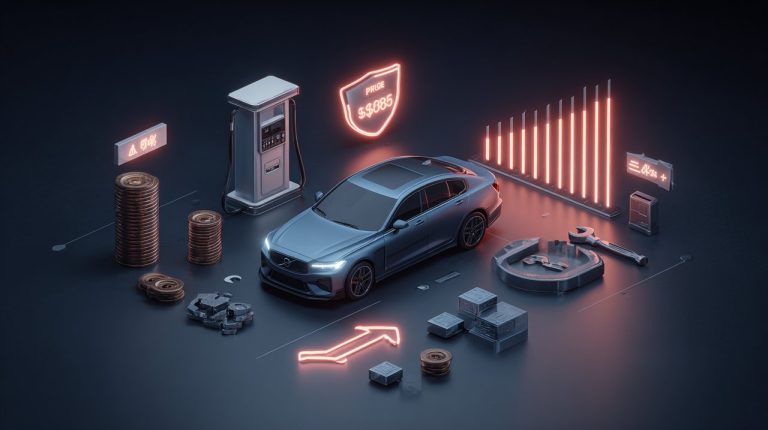Beyond the Sticker Price: Unpacking Your Car’s True Cost of Ownership
Thinking about a new car? Most folks zero in on the sticker price, and honestly, that’s a huge financial blind spot. From our experience here at The Idea Sager Lab, that initial price tag usually covers less than 30% of a vehicle’s Total Cost of Ownership (TCO) over its lifetime. The real story—the other 70% or more—unfolds in ongoing expenses.
That’s why a systematic, data-driven approach isn’t just nice-to-have; it’s absolutely essential for making a smart choice, especially when you’re weighing gas versus electric vehicles. We’re here to give you the blueprint.

The Illusion of Sticker Price: Beyond the Showroom Floor
The upfront cost of a vehicle is just your down payment on a much larger financial commitment. While an electric vehicle (EV) might initially seem pricier, that figure rarely tells the whole financial story.
We’ve seen countless people miss the immediate financial considerations that pile onto the true purchase price. Think sales taxes, registration fees, and those sneaky dealer add-ons. For EVs, it gets even more interesting: federal and state incentives can dramatically slash the effective purchase price, often surprising those who only glance at the Manufacturer’s Suggested Retail Price (MSRP).
Operational Realities: Gas vs. Electric Fueling & Maintenance
Once you drive off the lot, the biggest ongoing costs are fueling and maintenance. This is where the fundamental differences between gas and electric powertrains really shine, or don’t, depending on your perspective.
Fueling Costs: Pumps vs. Plugs
Fueling a gasoline car means regular visits to the pump, with costs directly tied to wildly fluctuating gas prices. An electric car, on the other hand, primarily sips electricity. This can be significantly cheaper per mile, especially if you’re charging at home during off-peak hours.
For many drivers, electricity costs per mile are 2-4 times lower than gasoline costs. This depends heavily on your local rates and vehicle efficiency. Public fast charging can be pricier, but home charging remains the most cost-effective solution for the majority of EV owners. Your driving habits and local utility rates are critical inputs for an accurate comparison here.

Maintenance & Repairs: Fewer Moving Parts, Fewer Headaches?
Conventional gasoline vehicles are maintenance hogs. They demand routine oil changes, spark plug replacements, and exhaust system checks. Their complex internal combustion engines are packed with hundreds of moving parts that wear down over time.
Electric vehicles, in stark contrast, boast a much simpler drivetrain. No oil changes, no spark plugs, no exhaust system maintenance needed. Plus, regenerative braking significantly reduces wear on brake pads, often extending their lifespan considerably. It’s a game-changer for your wallet and your peace of mind.
- Gas Car Maintenance: Think regular oil changes, filter replacements, spark plugs, timing belts, exhaust system checks.
- Electric Car Maintenance: Mostly tire rotations, cabin air filter replacements, brake fluid checks, and occasional (less frequent) brake pad replacement.
While EV battery degradation is a factor over a vehicle’s lifespan, most manufacturers offer robust warranties (typically 8 years/100,000 miles or more) for battery packs. This largely alleviates immediate concerns about early battery replacement costs.
Insurance & Taxes: Variable Expenses
Insurance premiums for EVs can sometimes be higher due to specialized parts and repair processes. However, this trend is evolving as EVs become more mainstream. Factors like vehicle value, safety features, and your driver history still play a much larger role in determining your rates.
Some states also impose an annual registration fee or ‘road tax’ on EVs to offset lost gasoline tax revenue. These fees are usually fixed, but they’re important to factor into your annual costs so you don’t get caught off guard.
The True Cost Calculator: Your Blueprint for Informed Decisions
Understanding these nuanced costs requires more than just gut feelings or simple estimates; it demands a structured, systematic approach. This is exactly where a robust True Ownership Cost calculator becomes absolutely indispensable. Consider it your operational blueprint, allowing you to synthesize disparate financial data into a coherent, long-term projection.
Relying solely on the initial price or anecdotal evidence is a recipe for financial regret. A calculator ensures you get a systematic, personalized financial forecast that actually reflects your reality.
Essential Variables for Accurate Calculation
Our calculator is engineered to account for all significant cost factors, providing you with a comprehensive financial overview. We believe in transparency and precision when it comes to your money.
- Purchase Price (after incentives): This is the actual amount you pay out of pocket, including any tax credits or rebates you qualify for.
- Financing Costs: If you’re taking out a loan, factor in interest rates, the loan term, and your monthly payments.
- Fuel/Charging Costs: Based on your estimated annual mileage, the vehicle’s efficiency (MPG or Wh/mile), and current local fuel or electricity prices.
- Maintenance & Repairs: Account for scheduled service intervals and estimated costs for both routine upkeep and any unexpected repairs.
- Insurance Premiums: Your annual or monthly insurance costs, specifically tailored to your chosen vehicle and your driver profile.
- Taxes & Fees: This includes sales tax, registration fees, and any specific EV road taxes applicable in your state.
- Depreciation: The estimated loss in value over your ownership period. This is often the single largest, yet most overlooked, cost.
- Home Charging Infrastructure: For EVs, consider the cost of installing a Level 2 charger at home, if that applies to your situation.

Beyond Simple Averages: Granular Data Input
The real power of our calculator lies in its ability to accept granular, personalized data. We know that a national average rarely reflects your individual circumstances. Your specific driving habits, local utility rates, and even your credit score for financing all contribute to your unique ownership cost profile.
Think of car ownership like managing a complex personal budget. You wouldn’t just look at your monthly salary, right? You’d meticulously track every income stream and expense, from housing to groceries, to truly understand your financial health. Our calculator applies this same rigorous methodology to your vehicle choice, giving you the clarity you need.
Long-Term Value & Market Dynamics: The Depreciation Factor
Depreciation, the decline in a vehicle’s value over time, often represents the largest component of its true ownership cost. It’s a hidden expense because you don’t pay it monthly, but it significantly impacts your net financial position when you eventually sell or trade in the car.
Historically, EVs did depreciate faster than comparable gas cars due to evolving technology and early battery concerns. However, this trend is rapidly shifting as EV technology matures and market demand skyrockets. The long-term durability of EV batteries and the increasing cost of gasoline are now positively influencing EV resale values.
Battery health remains a key determinant of an EV’s resale value. Reputable calculators factor in estimated depreciation curves for both gas and electric models, giving you a much clearer picture of your asset’s future worth.
Your Informed Choice Starts Here
Understanding the true cost of car ownership means looking far beyond that initial price tag. Our systematic approach reveals that the long-term financial implications of gas versus electric vehicles can be surprisingly different.
Those hidden costs and potential savings become crystal clear only when you consider every variable, from fuel and maintenance to insurance and depreciation. We designed our calculator as a practical, results-oriented tool to help you navigate this complexity. It transforms abstract financial concepts into actionable insights, providing you with a personalized blueprint for your next vehicle purchase.
Take the guesswork out of your decision. To truly compare your true ownership costs and make an informed choice that aligns perfectly with your financial goals, utilize our dedicated tool True Cost of Car Ownership Calculator.
💡 Frequently Asked Questions
The Total Cost of Ownership (TCO) for a car is the full financial commitment beyond its initial sticker price, including ongoing expenses like fueling, maintenance, insurance, taxes, and depreciation. The article states the sticker price usually covers less than 30% of a vehicle's lifetime TCO, with the other 70% or more unfolding in ongoing expenses.
The biggest ongoing costs after purchasing a car are fueling/charging and maintenance. Other significant ongoing expenses include insurance premiums, taxes, fees, and depreciation.
Fueling a gasoline car means regular visits to the pump with costs tied to fluctuating gas prices. An electric car primarily sips electricity, which can be significantly cheaper per mile (often 2-4 times lower than gasoline costs), especially if charging at home during off-peak hours.
Conventional gasoline vehicles require frequent maintenance like oil changes, filter replacements, and spark plugs due to their complex engines. Electric vehicles, in contrast, have a much simpler drivetrain, requiring less maintenance, such as no oil changes or spark plugs, and regenerative braking significantly reduces brake pad wear.
Depreciation, the decline in a vehicle's value over time, often represents the single largest component of its true ownership cost. It's a hidden expense that significantly impacts your net financial position when you eventually sell or trade in the car, even though it's not a monthly payment.








